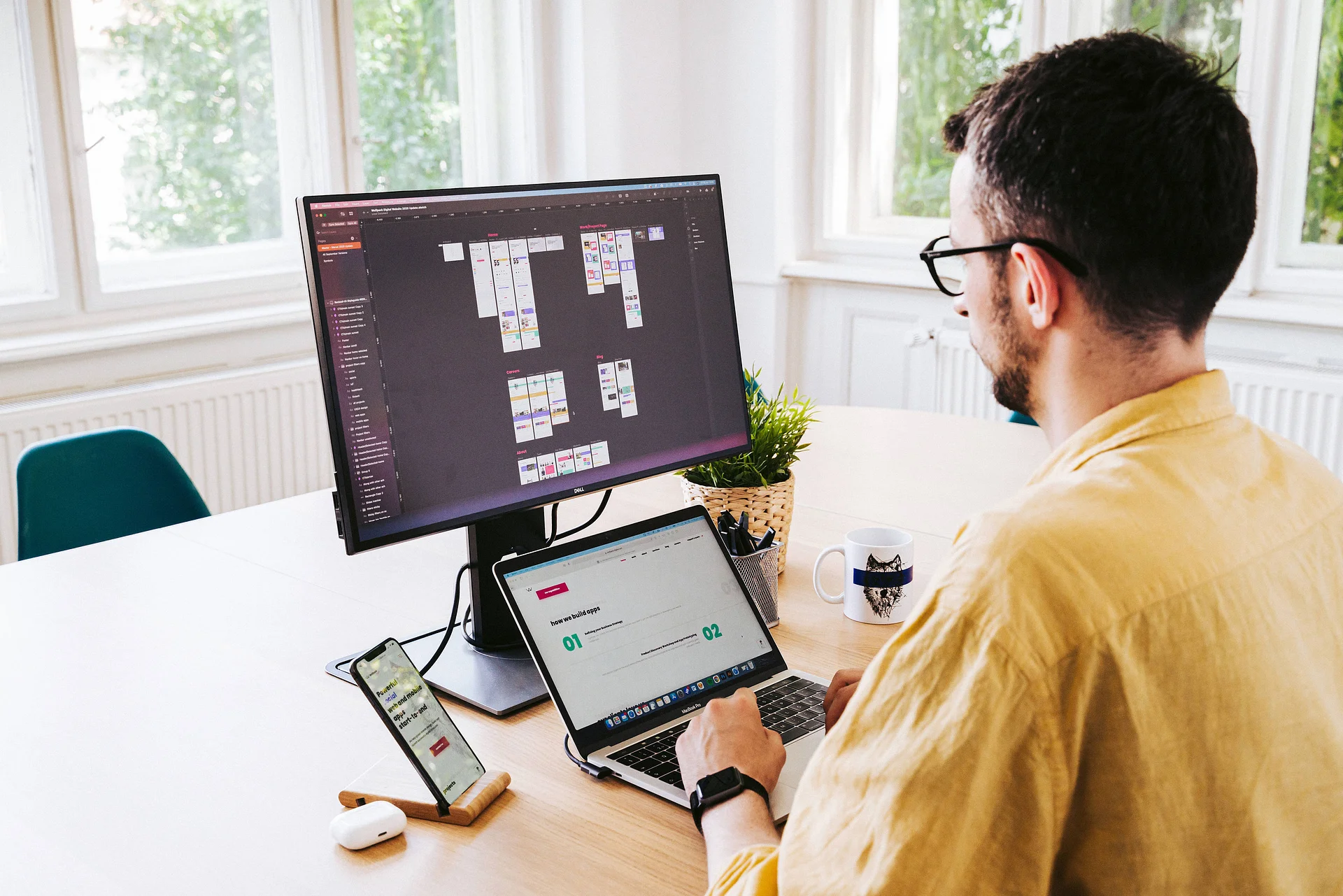There's no need to say that the last two years have been very challenging from a medical point of view. Besides the Covid-19 pandemic, which made our life much more complicated, patients with other types of diseases have also been affected. Increased occupancy rates in hospitals, ultra-busy medical schedules, more caution when meeting with other people; all these things made us look for alternative solutions for our health issues.
Besides the traditional video consultations with doctors, there has been an increasing demand for healthcare apps. They are just a tap away from you, on your phone, and you can use them safely anywhere. Well, we'll see how "safe" is in a moment because security is just one of the strong points that a healthcare app should have.
What other aspects do you need to pay attention to if you want to build such an app in 2022? Let's see.
First things, first: Types of healthcare apps
There are various types of apps related to the Health sector, some more general, others more specific, but we can classify them into two big categories:
1. Apps used by healthcare providers. These are usually present in hospitals or labs, storing medical data or acting as companions to medical devices. They are only accessible to the authorized staff, not the general public.
2. Apps used by patients. These apps are present on our phones, assisting us with our medical treatment or general advice. We can also use them to make appointments or talk to our doctors, but more about that in a minute.
Now that we got an idea about the general types of healthcare apps, let's continue with the checklist we mentioned in the beginning: what to consider when building such an app in 2022?

1. Take security & privacy very seriously
Such a surprise, right? When it comes to medical data, there's no room for errors. We're talking about sensitive information that needs to be protected.
Indeed, the mobile side usually doesn't store such data, most of it is in the cloud, in a database. However, the app itself can offer access to that sensitive information, and it is this access that we need to protect. We have an entire article about that right here, but here are a few more tips:
- Encrypt sensitive data (like access tokens)
- Use only HTTPS when communicating with the backend side
- Limit the number of dependencies and requested access permissions
On the privacy part, there are a series of regulations and rules that you need to obey when creating a healthcare app. If you store any personal information (that can identify people, like the date of birth), then you must be HIPAA Compliant.
HIPAA stands for Health Insurance Portability and Accountability Act. It's a collection of rules and regulations about how you can record, save and manage a person's protected health information (PHI) electronically. It has three major components:
- The privacy rule
- The security rule
- The breach notification rule
2. Know your target audience
We're talking about apps that serve a specific purpose, so it's crucial to know who will be part of your audience. That's because you can tailor the app itself to those people better:
- Increased font size and contrast if the average age is higher
- Colors and animations if it's an app for children or young people in general
- Multi-language support if you're targeting multiple countries or a country with more than one spoken language
- Accessibility features for people with disabilities
The list goes on, but we will handle the UI/UX part in a separate section below.
3. Focus on communication with professionals
An app alone can be helpful, but to take it to the next level, you need to allow patients to interact with healthcare professionals easily. Many hospital visits are for simple problems or questions, and we could solve them over the phone or with a video call. Moreover, that would also be safer during these pandemic times. So, how to improve your app's communication level?
- Real-time text chat with a doctor
- An AI-powered chatbot
- Schedule and perform a video call with a healthcare professional
- Asynchronous messages between the doctor and the patient on specific topics
Features like these can make your app stand out from others while creating a pleasant user experience. Speaking about user experience...
4. Ensure a beautiful design and engaging user experience
Medical apps don't need to be boring and formal. To keep users engaged and happy, you need to pay attention to how you design your app and the user interaction. The goal should be to provide an elegant and smooth user experience throughout the entire app.
To achieve this, it starts right from the first impression that your app makes, and it continues to each functionality you offer. The list of good UI/UX practices is long, so make sure you check our articles on those topics. Here’s a good one to start you off.
What is the future of healthcare apps?
It's hard to say where healthcare apps are heading because most of today's "hot topics" can be used in the health industry as well:
-
Augmented Reality: especially in apps for healthcare providers, enhancing their daily work with supportive features like annotations or real-time data. It can also prove invaluable as a teaching tool for the next generations of healthcare professionals
-
Artificial Intelligence: we already mentioned chatbots, but AI has long been used in medicine, either in disease prediction or helping doctors with diagnoses
-
Internet of Things: you might think about apps that connect to medical devices via Bluetooth, and that's correct. Most of the IoT-related healthcare apps fall into this category. However, you can also implement features like indoor navigation in big hospitals using beacons, for example, or room-control features in hospital rooms (temperature, humidity, etc.)
The important thing is to make sure that you pay attention to the aspects presented above while also striving to create a unique and helpful experience for your target audience. In the end, it's about solving problems and making our life easier and better.
If you're looking for a technical partner to build such an app, especially one with experience in the healthcare industry, let's get in touch! In the meantime, please check out the products and articles that we've already made in this area.







